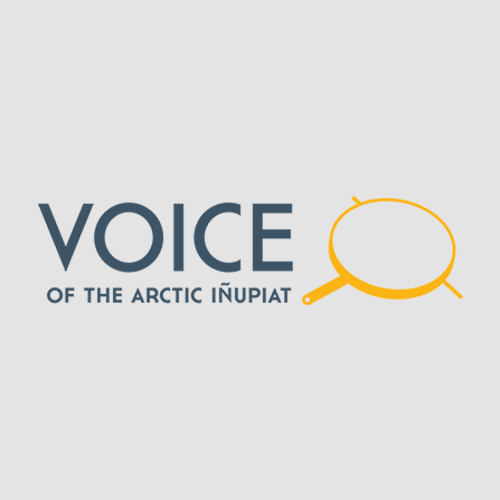On Monday evening, the U.S. Bureau of Land Management (BLM) and the U.S. Fish and Wildlife Service (FWS) hastily convened a public meeting regarding the Coastal Plain Draft Supplemental Environmental Impact Statement (SEIS) — just 19 days after the Biden administration imposed major restrictions on the National Petroleum Reserve in Alaska (NPR-A) and canceled active leases within the Coastal Plain, the 1002 Area, of the Arctic National Wildlife Reserve (ANWR).
The meeting proceeded despite multiple requests by North Slope tribal leaders and citizens to reschedule due to minimal notice of only two business days. When VOICE members pressed why the public meeting went forward in the face of legitimate concerns by community members, the BLM and USFWS representatives shared that they wanted to honor their public notice and that reporters had planned their travel around the meeting. Ignoring the requests of indigenous peoples to accommodate the media amounts to a failure to partner with or honor Alaska Native people and their traditions. Only about seven community members attended the meeting given the short notice.
“This administration has made it a talking point to state that indigenous voices are heard, including on issues like respecting indigenous subsistence traditions and having a seat at the table through consistent communication and consultation. Then why were we given minimal notice for Monday’s public meeting? I was personally hosting the community at a pre-arranged event and was not going to reschedule time with my constituents to accommodate the BLM and FWS schedules,” said North Slope Borough Mayor Harry Brower Jr.
North Slope coastal villages, including Utqiaġvik, where the public meeting occurred, and Kaktovik, the only community located within ANWR and the 1002 Area, are currently either actively whaling or preparing for their fall whaling season.
George Edwardson, President of the Iñupiat Community of the Arctic Slope, remarked during the meeting: “Our sovereignty says, we are supposed to be treated differently, don’t just step on us and run by and take off.”
Complicating the issue was the fact that BLM published the weighty Draft SEIS, over 1,400 pages long, only 12 days prior to the meeting — and in the midst of a three-month long broadband crisis on the North Slope that left an area the size of Minnesota with patchwork internet, mobile, and landline connectivity. Local service was restored only last week — six days before this meeting. That left our communities with neither sufficient access nor time to review the proposal and, as a result, were hard-pressed to offer meaningful feedback on the issue.
“A short unreasonable timeline to go through 1,400 pages was one of the reasons why we asked to reschedule,” said Doreen Leavitt, Iñupiat Community of the Arctic Slope Council Secretary and Director of Natural Resources. “And BLM did not honor our request to reschedule to later next month, a timeframe that would have taken into account our indigenous and traditional ways that we have practiced since time immemorial.”
“Going forward, we urge the administration to share information to help our communities better understand the decision-making process and when the administration will or will not consult our communities about policies affecting our people and lands,” said City of Utqiaġvik Mayor Asisaun Toovak.
This public meeting came on the heels of a VOICE leadership trip to Washington, D.C. to share a message of partnership in the hope of strengthening the relationship between the North Slope and our nation’s capital.
“VOICE was just in Washington to testify before Congress on the lack of communication and consultation by DOI surrounding the announcement canceling the ANWR leases and locking up over half of NPR-A. Even so, I ended my testimony by extending a hand of partnership on behalf the Iñupiat of the North Slope, in hopes for a better future. Disappointingly, less than a week later, BLM and FWS held a public meeting on the very same issue of my testimony, with the very same disregard for the tribes, community members, and tribal leadership as earlier this month with the ANWR and NPR-A announcement. I once again will reiterate that we can and must partner to create a better future for the next generations,” said Nagruk Harcharek, President of Voice of the Arctic Iñupiat.
The BLM and USFWS’s latest actions demonstrate a need for significant improvement from DOI and its agencies to build a more respectful and effective partnership between the North Slope Iñupiat and policymakers in Washington and Alaska.

